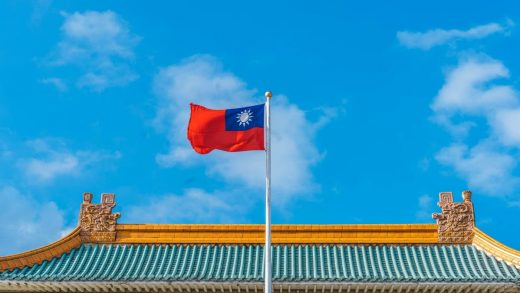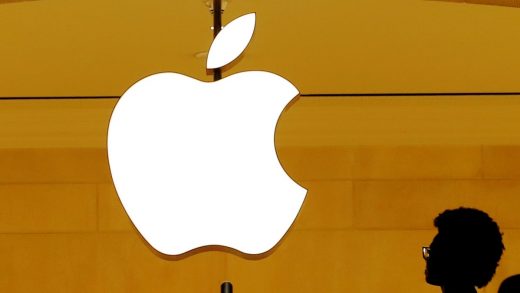:format(webp)/https://www.thestar.com/content/dam/thestar/entertainment/movies/2023/05/15/johnny-depp-scarlett-johansson-leonardo-dicaprio-the-cannes-film-festival-returns-to-pre-pandemic-glamour/cannes_indiana_jones.jpg)
CANNES, FRANCE Johnny Depp has ample reason to smile Tuesday when he ascends the scarlet stairs into the Palais des festivals for the start of the 2023 Cannes Film Festival.
As the main draw of “Jeanne du Barry,” a period romance in which he plays French King Louis XV, who falls for a commoner played by actor/director Maïwenn, he’s opening the 76th edition of the world’s most prestigious film fest, which runs through May 27.
He’s also making a triumphant return to the big screen after winning a defamation suit last summer against his ex-wife, Amber Heard. Their highly publicized court battle, rife with domestic abuse allegations, had imperilled his acting career.
Depp won’t be the only star with extra spring in his well-heeled step on the Cannes red carpet. More Hollywood celebrities than usual are expected here for world-premiere screenings, visible proof of a return to pre-pandemic glamour, and also validation that movies and film festivals endure as public passions.
The boldfaced abundance includes Tom Hanks and Scarlett Johansson for Wes Anderson’s “Asteroid City”; Leonardo DiCaprio and Robert De Niro for Martin Scorsese’s “Killers of the Flower Moon”; Julianne Moore and Natalie Portman for Todd Haynes’ “May December”; Harrison Ford and Phoebe Waller-Bridge for James Mangold’s “Indiana Jones and the Dial of Destiny”; and Sean Penn, Tye Sheridan and Mike Tyson for Jean-Stéphane Sauvaire’s “Black Flies.”
Cannes ’23 will also feature the world premiere of “The Idol,” an upcoming sex-and-stardom HBO TV series set in Tinseltown and co-created by Toronto’s Abel “The Weeknd” Tesfaye, who also stars alongside Lily-Rose Depp, daughter of Johnny.
“Cannes has not lost its magic,” Iris Knobloch, the new president of the festival and first woman to hold the post, recently told Le Figaro newspaper.
The festival is even more effusive about the “unspeakable magic” of film symbolized by its official poster this year. It shows French screen legend Catherine Deneuve adjusting her hair on a movie set in 1968.
The poster is designed, a press release said, to “reiterate the glorious present of cinema and to envisage its future full of promise. Catherine Deneuve stands for what cinema should never stop being: elusive, daring, irreverent. Something self-evident: a necessity.”
That’s a lot of movie love, but there are good reasons for it.
The pandemic that shuttered theatres worldwide for much of the past three years is finally in the rear-view mirror.
Streaming services that threatened to make movie-going a strictly at-home pursuit are struggling to grow and/or retain audiences. Disney Plus recently announced a drop of four million subscribers, its second straight quarterly decline.
Moviegoers, meanwhile, are returning to theatres in encouraging numbers: the North American box office for April was up nearly 12 per cent from the same month in pre-pandemic times, the first time that’s happened since COVID struck.
Apple and Amazon recently committed to putting their films into theatres before placing them online, a major concession to movie-going tradition. It validates Cannes director Thierry Frémaux’s controversial stance that only films with guaranteed theatrical releases can compete for the Palme d’Or, the fest’s top prize.
Apple is world premiering Scorsese’s crime thriller “Killers of the Flower Moon” at Cannes, which tells the fact-based story of the FBI hunt for the murderers of Osage Nation inhabitants of oil-rich Oklahoma land in the 1920s. It stars DiCaprio, De Niro and Canadian screen star Tantoo Cardinal, who is also travelling to Cannes.
“So looking forward to it,” Cardinal said via email. “Scorsese, I suspect, is a wizard. I appreciate that he took this story on. I look forward to what he has done with it. I appreciated working with Scorsese and the fabulous Osage folks who were involved with the production.”
There is a considerable Canadian presence at Cannes 2023. Another star of “Killers of the Flower Moon” is Canadian-American actor Brendan Fraser, who recently won the Best Actor Oscar for “The Whale.”
Three Canadian productions or co-productions will premiere at the festival.
Two are in the Un Certain Regard sidebar program: “The Nature of Love (Simple comme Sylvain),” by Quebec writer/director Monia Chokri, about a 40-year-old married philosophy professor, played by Magalie Lépine Blondeau, who falls hard for a rough-edged handyman, played by Pierre-Yves Cardinal; and “Terrestrial Verses,” co-directed by Iran’s Ali Asgari and Canada’s Alireza Khatami, a series of sharp-eyed vignettes about everyday life in Tehran, as old ways clash with modern attitudes.
The third Canadian premiere is in the Director’s Fortnight sidebar: the psychological horror “In Flames” by Zarrar Kahn, a Canada-Pakistan writer/director/producer and alumnus of the TIFF Filmmaker Lab in Toronto.
In the main event at Cannes, the 21 films of the Palme d’Or competition, there are a record seven directed by women: Justine Triet’s “Anatomy of a Fall,” Ramata-Toulaye Sy’s “Banel & Adama,” Alice Rohrwacher’s “La Chimera,” Jessica Hausner’s “Club Zero,” Catherine Corsini’s “Homecoming,” Catherine Breillat’s “Last Summer,” and Kaouther Ben Hania’s documentary “Olaf’s Daughters.”
Many previous Palme contenders and/or winners are back in the competition, among them Britain’s Ken Loach (“The Old Oak”), Finland’s Aki Kaurismaki (“Fallen Leaves”), Japan’s Kore-eda Hirokazu (“Monster”), Italy’s Nanni Moretti (“A Brighter Tomorrow”), Turkey’s Nuri Bilge Ceylan (“About Dry Grasses”) and Germany’s Wim Wenders (“Perfect Days”).
The nine-member feature film Palme d’Or jury is headed by two-time Palme winner Ruben Östlund (“Triangle of Sadness,” “The Square”). The Swedish filmmaker is joined by French filmmaker Julia Ducournau, one of only two women ever to win the Palme (for “Titane” in 2021), Hollywood actors/directors Paul Dano and Brie Larson, French actor Denis Ménochet, Argentinian writer/director Damián Szifrón, British-Zambian writer/director Rungano Nyoni, Moroccan director Maryam Touzani and Afghan author Atiq Rahimi.
There’s a mystery about this year’s Palme race: Why didn’t Martin Scorsese want to be in it? He opted for an out-of-competition premiere for “Killers of the Flower Moon,” despite entreaties by Cannes head Frémaux that he join the Palme contest. Scorsese has already won the Palme, for “Taxi Driver” in 1976. He’s also won Best Director at Cannes, for “After Hours” in 1986, so perhaps he figures he’s already received enough accolades here.
JOIN THE CONVERSATION
does not endorse these opinions.




